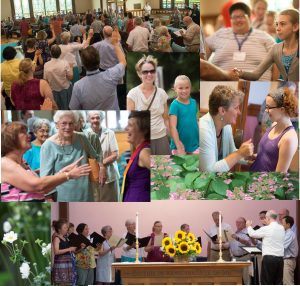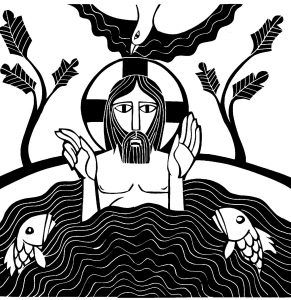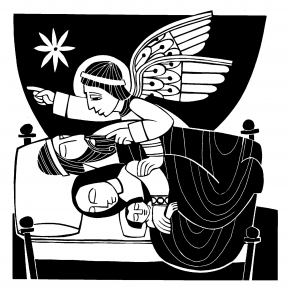Matthew 5:1-12
Over the past two weeks we’ve watched Jesus start his ministry. We saw Jesus at the Jordan, where he was baptized and recognized as the Lamb of God. We watched Jesus travel to Capernaum, and begin to preach. We were witnesses as Jesus began to put together his team, calling fishermen off their boats to become his disciples.
Now Jesus is traveling and teaching and healing throughout the region of Galilee. His ministry is fully launched, and let me tell you: it is going great. Everyone wants to hear Jesus’ words. Everyone wants to feel Jesus’ touch. Everyone wants what Jesus has to offer.
But as Jesus looks out at all the people who have shown up in our scriptures today, he doesn’t celebrate his success. He doesn’t try to consolidate his popularity. Instead, he turns around, goes up a mountain, and sits down. We can imagine the disciples’ confusion; what is Jesus up to now? Uncertain, they gather around him, waiting for whatever is going to happen next. Then Jesus begins to preach. He begins to preach a very strange sermon. He says:
Blessed are the poor in spirit, for theirs is the kingdom of heaven.
Blessed are those who mourn, for they will be comforted.
Blessed are the meek, for they will inherit the earth.
Blessed are those who hunger and thirst for righteousness, for they will be filled.
Blessed are the merciful, for they will receive mercy.
Blessed are the pure in heart, for they will see God.
Blessed are the peacemakers, for they will be called children of God.
Blessed are those who are persecuted for righteousness sake, for theirs is the kingdom of heaven.
Blessed are you when people revile you and persecute you and utter all kinds of evil against you falsely on my account.
Rejoice and be glad, for your reward is great in heaven, for in the same way they persecuted the prophets who were before you.
I imagine that the disciples were feeling pretty good about themselves before this mountain top trip. Sure, they’d thrown away their livelihoods and left their families to follow an inexperienced rabbi reformer. They’d taken a big risk. But that risk is definitely paying off! They are at the right hand of the most famous religious leader around. With all of his wisdom and all of his influence, surely the future must be bright.
But Jesus, with his experiences fleeing Herods, with his experience of the arrest of John the Baptist – Jesus has a better idea of what his team is up against. Jesus, on his mountaintop perch, sees a bigger picture. This movement they’ve started isn’t going to be a glamorous one. Jesus knows his disciples need something more than he’s given them so far, to prepare them for the trials that are ahead.
Blessed are those who mourn, he says; for there is a great deal to grieve and only if we grieve can we find comfort. Privileged are those who hunger and thirst for righteousness, he says; for our longing will empty us of hate and fill us up with love. Happy are those who are persecuted for righteousness sake, he says; for in standing up for God’s Kingdom, we will become residents of it, no matter what happens around us.
There is suffering ahead, Jesus tells the disciples: suffering, because we are human; suffering, because of our social location; suffering, because of our calling. There is suffering ahead as we work to realize God’s kingdom of love and justice on earth. Prepare your hearts, and remember that in our suffering, God still offers a blessing. (more…)



